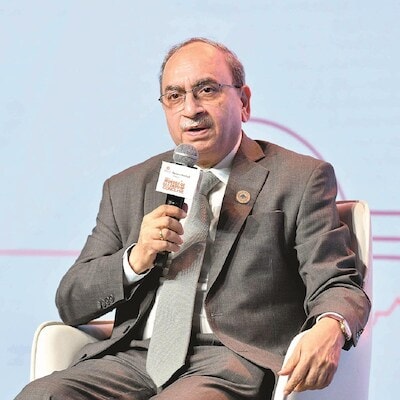The lender would hold off on making money from its subsidiaries until after they have further expanded, according to SBI Chairman Dinesh Kumar Khara. Examples of these companies are SBI General Insurance and SBI Payment.
The parent State Bank of India (SBI) will receive better returns and a higher valuation if they expand their operations.
he stated that the capital market would be the means of monetizing subsidiaries.
“The subsidiaries, which would be eligible for this kind of route, would be essentially our SBI General and may be at some stage, SBI Payment Services, but as of now, we don’t have any such plan,” he stated.
“We might prefer to scale them up a bit more before considering our options for selling our stake in these companies on the capital market. However, not for the current fiscal year,” he continued.
In the fiscal year that concluded on March 31, 2024, the bank contributed an extra Rs 489.67 crore to the capital of SBI General Insurance Company Ltd. The bank’s equity has dropped from 69.95 percent to 69.11 percent as a result of the company offering ESOP to its employees.
SBI General Insurance’s net profit for the fiscal year that ended in March 2024 increased by 30.4% to Rs 240 crore. In the preceding fiscal year, the non-life subsidiary of State Bank of India had a net profit of Rs 184 crore.
SBI owns 74% of SBI Payment Services Pvt Ltd, a company in the merchant acquisition business, while Hitachi Payment Services owns the remaining portion.
As of March 31, 2024, SBI Payments ranked among the nation’s leading acquirers, boasting over 3.310 million Merchant Payment Acceptance Touch Points across various locations, including 1.367 million Point of Sale devices.
Nevertheless, compared to the previous year’s Rs 159.34 crore, the company’s net profit decreased to Rs 144.36 crore for the year that ended in March 2024.
Additionally, Khara stated that loans totaling Rs 5 trillion are in the works because to the corporate sector’s increasing need for credit.
In contrast to recent years, when corporations had a sizable cash surplus on their balance sheet, he added, they have begun to search for credit in order to finance their need for working capital as well as their plans to expand their capacity.
We have now reached a point where corporations are asking banks to increase their capacity or to obtain operating capital. Naturally, I can say this with confidence because our unavailed term loan percentage has decreased from 25% to 18%, and even the working capital utilisation has increased,” the speaker stated.
According to him, all of these indicate that there would be chances in the private sector and that SBI can add value to the industry.
At the same time, he added, “When we look at our pipeline for the new proposals, that is also quite healthy, somewhere around Rs 5 trillion or so” .
SBI to monetise subsidiaries after scaling up their biz Chairman Khara | Company News

